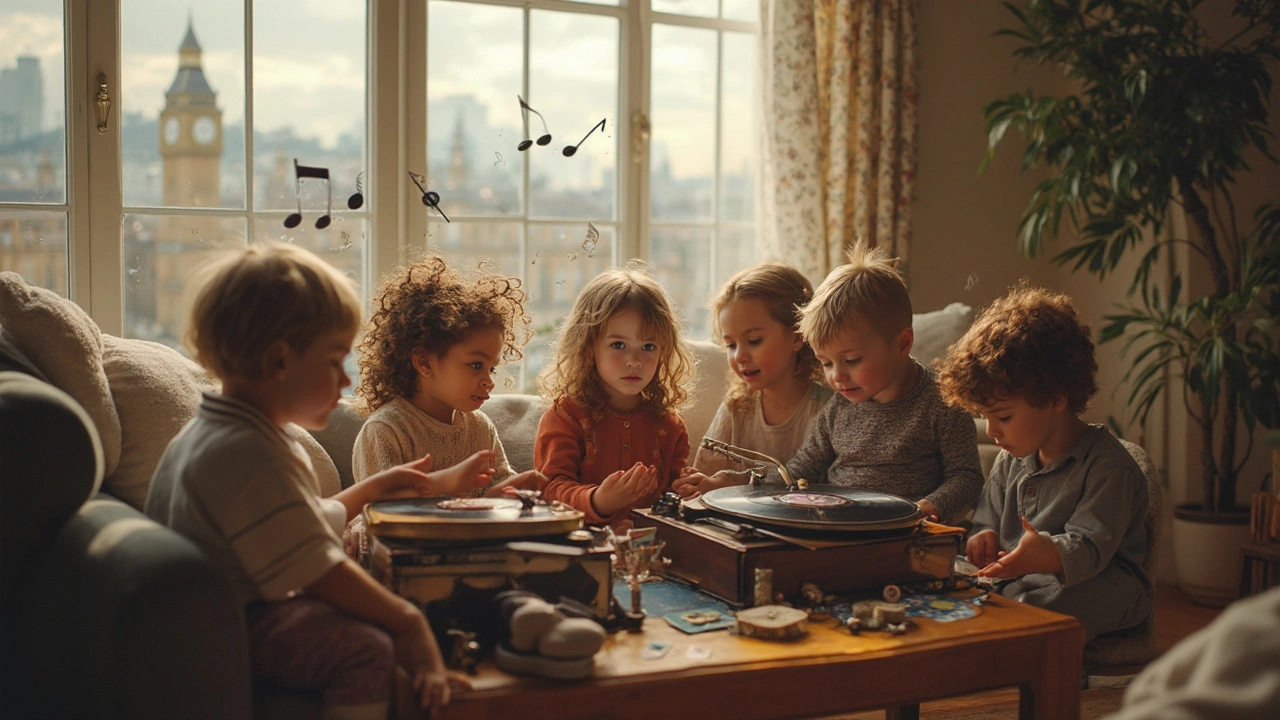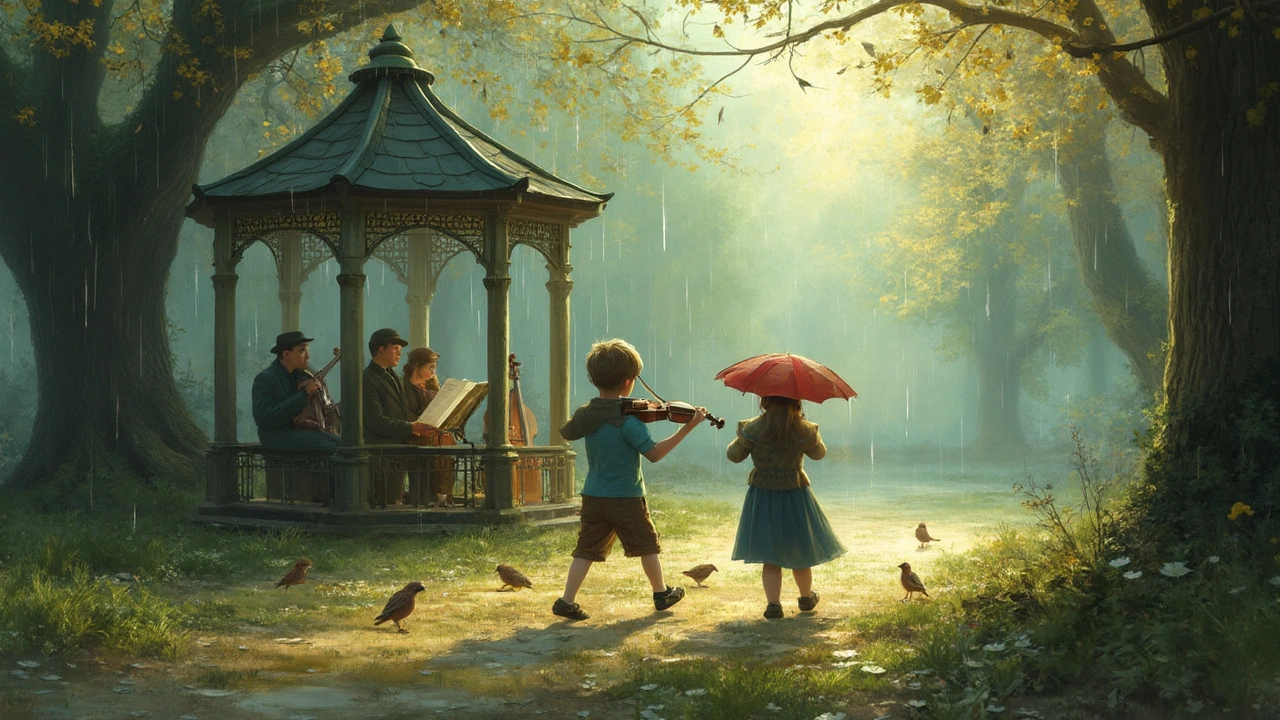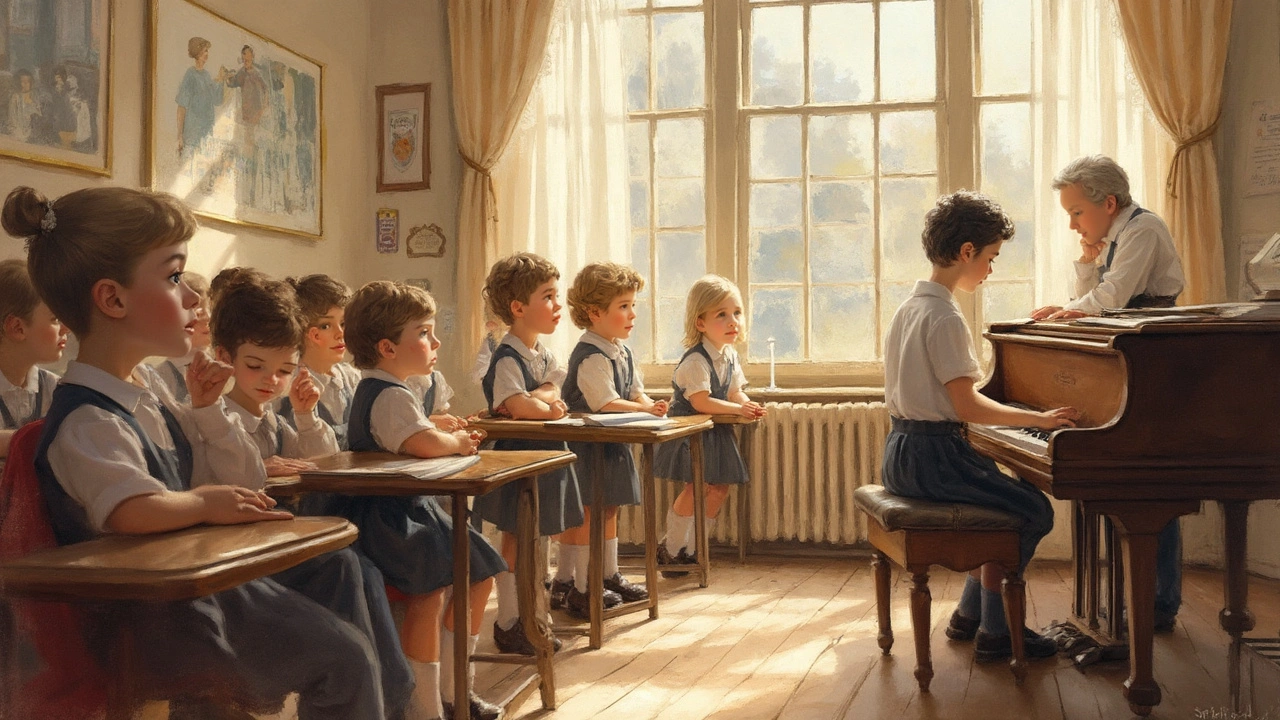You think Mozart sounds stuffy? Seconds after hearing my son Alistair’s baby giggle while listening to Bach, I realized it’s the farthest thing from boring. Classical music works almost like magic on kids’ minds, firing up all sorts of abilities you never see when they’re glued to a tablet. It’s not about prepping your five-year-old to compete at Carnegie Hall. I’m talking about setting up foundations for sharper thinking, better emotions, and deep-down joy. Most surprising, it doesn’t matter if your kid can’t read music at all—just listening can spark real changes inside those growing brains.
What Actually Happens in a Kid’s Brain When They Hear Classical Music?
Picture this: Your child sits, maybe fidgeting, as a string quartet fills the room with sound. The brain doesn’t just passively take it in; neurons light up in spots linked to language, memory, movement, and even empathy. An fMRI study out of MIT found that kids who listened to classical pieces showed stronger activity in regions tied to complex pattern recognition and emotional control. Another cool fact: Dr. Nadine Gaab’s lab at Harvard mapped how music triggers a “whole brain workout,” connecting the right and left hemispheres in ways language alone never does.
Why is this so powerful during childhood? The brain is wild with plasticity before age eight. Synapses—the little connections between neurons—are forming at a mind-bending rate: about 700 new ones every second. When classical music, packed with complex harmonies and unpredictable rhythms, hits those circuits, it’s like fertilizer on a growing plant. You get boosts in memory, faster problem-solving, and even a thicker corpus callosum (that’s the bridge letting the brain halves talk to each other). The late Dr. Gottfried Schlaug’s research tracked music-learners and found their brains, after a year of music lessons or regular listening, were structurally different from their non-musical peers—denser in areas tied to math and language.
It’s not just theory. In one large experiment, preschoolers who listened to classical music several times a week outperformed peers on tests of visual-spatial reasoning. If your kid struggles with legos or puzzles, playing Beethoven in the background might give them a subtle edge. Another study (Journal of Research in Music Education, 2022) found that first-graders who had daily music listening sessions scored higher on impulse control than those who didn't. That means fewer tantrums over snack time and better focus during class.
Classical Music and Language: Building Better Readers (and Talkers)
Ever wonder how some kids go from babbling to reading chapter books in a flash? Turns out, exposing them—early and often—to music rich in melody and rhythm paves the way for language smarts. Classical pieces naturally repeat patterns, phrases, and tonal shifts. This directly maps to how kids detect words, learn grammar, and hold conversations. For example, Vivaldi’s “Four Seasons” paints stories with sound, helping kids recognize narrative flow long before they can read a sentence.
Neuroscientists at Stanford ran a trial: they had two groups of toddlers, one heard children’s pop music, and the other listened to orchestral classics. After just three months, the kids in the classical group scored higher on tests measuring verbal memory and phonological awareness—the building blocks of reading. It’s not just the kids who take piano. Even passive listening sharpens these skills.
That ties in with stories from speech therapists who use gentle Bach or Schubert during sessions. They say the slow, deliberate rhythms help kids with speech delays coordinate their mouths for new sounds. Parents with bilingual homes, heads up: research shows that classical listening makes it easier for kids to switch between languages and pick up new words. If nothing else, it turns a nightly lullaby or car ride into secret language training, no flash cards needed.

The Emotional Power of Classical: Empathy and Emotional Intelligence
Let’s be real, school and life can get overwhelming for kids. Classical music taps into emotion in ways cartoons or video games don’t. The slow build of a Chopin nocturne or the playful pizzicato parts in Tchaikovsky hit the body differently. Heart rate syncs to tempo. Moods mellow out or perk up. This stuff even helps with emotion labeling — an essential skill for little kids learning to say “I’m frustrated” instead of melting down.
One fascinating stat: a Swiss experiment found that regular classical music listening in kindergarten reduced aggressive behaviors by 25% over six months. Teachers reported kids being kinder, more willing to share, and better at calming themselves down. Why? Because music boosts oxytocin, the so-called “bonding hormone,” while lowering cortisol (that’s the stress chemical). And it’s not just about keeping peace—studies show empathy scores tick up, especially in kids prone to anxiety or social struggles.
You can even see this play out at home. I sometimes play Debussy’s “Clair de Lune” after a tough day, and watch Alistair’s shoulders drop. He relaxes, listens, then starts talking about his day. We get deeper, more honest conversations—not forced talks about “feelings,” but real chats sparked by the music. Try swapping screentime for music time during homework or bedtime, and watch the stress turn down a notch.
Tips to Make Classical Music a Fun Part of Family Life
Don’t picture your living room turning into a concert hall. Bringing classical music into your home can be low-key and even fun. Start where your kids are. Kids’ brains crave variety, so mix up lively pieces like Rossini’s “William Tell Overture” with calming ones like Satie’s “Gymnopédies.” Use short tracks—kids’ attention spans are short—and let them move, dance, or draw with the music.
- Introduce a “Composer of the Week,” and play a new track in the background each morning as they eat breakfast.
- Turn bath time into “Opera Time” or car rides into “String Quartet Battles.” Let them vote on what piece they like most.
- Watch animated videos that use classical music—think the original “Fantasia”—to pair sight and sound, making it more memorable.
- Use music when changing activities (putting on a ballet waltz to signal “time to clean up” is a trick teachers swear by).
- If you play an instrument, involve your kid, even if it’s just banging a pot to the beat.
Want to make it stick? Keep it playful. Ask your kid what the music reminds them of: animals, colors, places? This helps imagination stretch, and it keeps them engaged. You can even visit free local concerts or outdoor summer music events to see musicians up close, showing that classical music is alive, not just a thing from the dusty past.

Evidence and Data: Classical Music’s Lasting Influence
Still skeptical? Take a look at concrete stats, not just parental anecdotes. Here’s what studies reveal about classical music and child development. Check this quick table:
| Study | Age Group | Duration | Findings |
|---|---|---|---|
| Stanford, 2021 | 3-5 years | 6 months | 35% boost in phonological awareness |
| Harvard, 2020 | 6-8 years | 12 months | Improved working memory and math scores |
| Zurich, 2018 | 5-7 years | 9 months | Lowered anxiety, better emotional control |
| Journal Res. Music Ed., 2022 | 4-6 years | 3 months | Higher scores on impulse control tests |
| Gaab Lab, 2019 | 6-9 years | 1 year | Increased brain connectivity and faster learning |
These results aren’t just impressive; they’re game-changing. Kids in music-rich environments keep reaping benefits for years, carrying sharper attention spans and more resilience right into adulthood. It matters outside school too. A survey by The Royal Conservatory of Music in Canada found that kids who grow up with classical music are three times more likely to keep up creative hobbies, and almost twice as likely to stick with college or higher education.
The smart money is on making classical music a normal part of your kid’s growing up—not as a ticket to being the next Yo-Yo Ma, but as a secret sauce for a more flexible, happy, and mentally powerful life. Whether your kid hums along, plays a few keys, or just listens while building with blocks, these old symphonies are still shaping modern brains. Trust me, your future self will thank you for pressing play.

